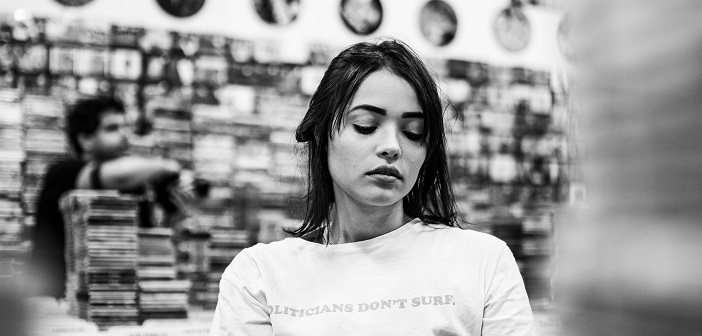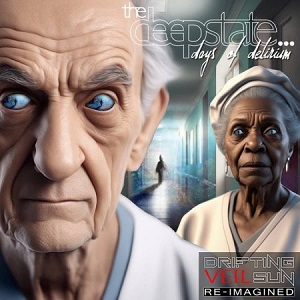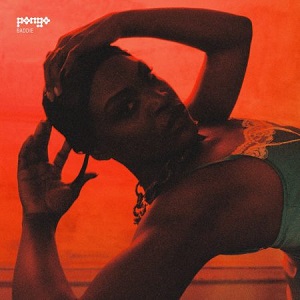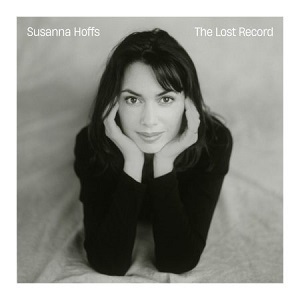Album review overview: Pongo, Susanna Hoffs and more
Dozens of new albums arrive at Maxazine’s editorial staff every week. There are way too many to listen to them all, let alone review them. It ensures that too many albums are left behind. And that’s a shame. That is why today we post an overview of albums that arrive at the editors in short reviews.
TheDEEPstate – Days Of Delirium
TheDEEPstate is a musical project by Drifting Sun guitarist Ralph Cardall. Together with James Sedge on drums and percussion, he produces eclectic instrumental and vocal music. “Veil” is (so far) the most successful album from Drifting Sun. “Days Of Delirium” is a reissue of this sold-out album. From the opening track, you can tell that this is going to be a very different album. For those who have listened to “Veil” often, it takes some getting used to. But “The Old Man” immediately intrigues me. I won’t detail the differences between these albums—there are too many. Even the tracklist is different. Some tracks are barely recognizable. Yet, you can still recognize Drifting Sun’s style, largely due to Jargon’s vocals, with his beautiful and distinctive voice. This trio has created a remarkable reissue of “Veil” with “Days Of Delirium.” (8/10) (Esther Kessel-Tamerus) (Self-Released)
Nieve Ella – Watch It Ache And Bleed
British singer-songwriter Nieve Ella releases a new EP, “Watch It Ache And Bleed,” which passes by in less than half an hour. The eight tracks, produced by Iain Berryman (known for his work with Hozier and Arcade Fire), are characterized by a chaotic but intriguing sound. While “Sugarcoated” emerges as one of the stronger tracks, the EP as a whole struggles with a certain restlessness. The spontaneity that typifies Ella’s work is refreshing but sometimes seems to come at the expense of musical depth. It’s as if ideas are let go too quickly before they can fully develop. The raw energy running through the EP is undeniable, but it lacks the refinement that made her earlier work so captivating. With a 5 out of 10, “Watch It Ache And Bleed” is an uneven release that mainly shows that this young artist, who has previously toured with Dylan and Inhaler, is still evolving. There’s definite potential, but this EP feels more like a hurried sketch than a fully realized work of art. (Jan Vranken) (5/10) (Nieve Bella Music Ltd)
Kelly Lee Owens – Dreamstate
Kelly Lee Owens’ journey from record store employee to renowned electronic artist has so far been marked by bold experiments and thoughtful innovation. However, her latest work, “Dreamstate” (2024), takes an unexpected and ultimately unsatisfying turn toward more commercial terrain. The Welsh producer’s move to dh2, an electronic sublabel of Dirty Hit, clearly signals an ambition to reach a broader audience. Despite the impressive list of collaborators, including Bicep, Tom Rowlands of The Chemical Brothers, and George Daniel of The 1975, the album falls short compared to her earlier work. The opening track “Dark Angel” sets a disappointing tone, with a noticeable lack of catchy hooks and melodic depth. The title track “Dreamstate” employs more interesting retro synthesizer sounds but still fails to rise above average dance music. The album’s biggest flaw lies in its weak compositions. While Owens’ earlier work (especially her debut album and “Inner Song”) excelled in skillfully integrating vocals and electronic elements, “Dreamstate” leans on reverb-soaked vocal fragments that float aimlessly above standard four-to-the-floor beats. The production feels surprisingly amateurish, given the calibre of the producers involved. This shift toward Ibiza-inspired trance stands in stark contrast to the mysterious techno-pop that established Owens’ reputation. The experimental flair that made “LP.8” so intriguing has been replaced by generic dance clichés that could have come from any random producer. For an artist who previously worked with avant-garde figures like Jenny Hval and John Cale, this retreat into formulaic dance music is particularly disappointing. While commercial success is not necessarily a bad thing, “Dreamstate” sacrifices Owens’ artistic identity without offering anything of value in return. (Anton Dupont) (2/10) (DH2)
Pongo – Pongo Baddie
With her new EP “Pongo Baddie,” Pongo once again confirms her status as a champion of the contemporary kuduro scene. Like her peer Miguel Batida, who recently gave kizomba a modern club twist with his single “Muscle Memory,” Pongo translates her Angolan roots into a contemporary sound that directly targets the dance floor. “Pongo Baddie” is a collection of tracks that allows no room for stillness. The opening track, “Alabamento,” is a true tour de force that compels the body to move—the hypnotic rhythms and pulsating beats make resistance futile. The contrast comes with “Mandela,” where Pongo slows down and creates space for introspection. Here, like Batida in his work, she touches on the complex emotions of the second-generation Angolan diaspora in Europe. The “saudade,” that typically Portuguese feeling of melancholic longing, seeps into the production without undermining the fundamental energy of the EP. Although “Pongo Baddie” may be too short to fully develop all its musical ideas, it leaves one eager for what a full album might bring. The EP showcases an artist who knows exactly how to control the club floor without losing sight of her cultural heritage. This release underlines the growing impact of Angolan dance music on the European club scene, where artists like Pongo and Batida are bringing traditional genres into the here and now. The result is an exciting fusion that is both respectful of its origins and forward-thinking in its execution. (Elodie Renard) (7/10) (Hive Music)
Susanna Hoffs – The Lost Record
A time capsule from 1999 finally sees the light of day. In the music world, ‘lost’ albums often come with elaborate myths, but Susanna Hoffs’ aptly titled “The Lost Record” has a refreshingly simple origin: it was simply sitting in her garage for 24 years. Recorded in 1999 with a group of friends, including Go-Go’s members Charlotte Caffey and Jane Wiedlin, this collection captures Hoffs during what she describes as a ‘sweet, special period’ of early motherhood and self-discovery. The garage setting fits Hoffs well, as she has frequently expressed her love for garage rock throughout her career. It’s the place where much of her musical journey has unfolded, from her early days to this intimate recording session. While this album doesn’t reach the intense vulnerability of certain well-known Bangles recordings (like the infamous story of Hoffs recording “Eternal Flame” alone and without clothes), it offers a different kind of intimacy—the easy creativity of friends making music together. The album includes early versions of tracks that would later find homes elsewhere, such as “Under A Cloud,” which The Bangles would eventually record in 2011. “I Will Take Care Of You,” co-written with Dillon O’Brian, appears here in what Hoffs considers its definitive form—raw and elegant, free from the polish that would characterize the later Bangles version. While it’s nice to finally hear these ‘lost’ recordings, they feel more like a historical document than an essential new release. However, the timing of this release is intriguing, as rumours suggest it could be a prelude to new Bangles activities in the coming year. In anticipation of that, this album serves mainly as an interesting footnote in Hoffs’ extensive career. (Jan Vranken) (6/10) (Baroque Folk Records)
![]()










